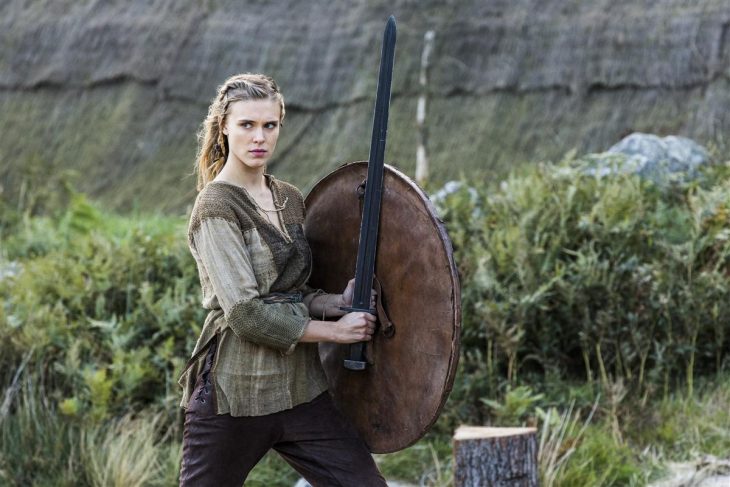
BANFF – Ireland (the republic), has a population of roughly 4.5 million folks, and yet it was one of the first countries to create a tax relief program for independent producers back in 1987.
That original approach is now much like the U.K. tax credit scheme. Although it still retains a penchant for encouraging doctors and dentists to invest, an approach Canada found illusory and awkward in our salad days of tax credits, it has succeeded – the Canada-Ireland co-pro Vikings series being a powerful case in point. The show has won eight major awards and been nominated for another 25 — including five prime time Emmys — was created by Canuck Michael Hirst, involves Shaw Media, and airs on History Channel.
In fact, today, Ireland enjoys one of the most flexible and enticing film and television payable tax credit schemes in the world. The current rules provide for a very lean and higher benefit payable tax credit of 32% on all Irish eligible expenditures. This 32% covers the lower of 80% of total production costs, the specific Irish spend, or £50,000,000.
Moreover, of interest to Canadian independent producers, absolutely no broadcaster involvement is currently required to qualify for this support. No Irish broadcaster, no European Union broadcaster, no broadcaster whatsoever.
The criteria defining an independent producer is simply that the entity earns less than 50% of its revenues from broadcasting. Nor does the applying independent producer need to be either Irish or an EU citizen; as long as the production activity actually happens in The Emerald Isle.
The one minor hitch, in my view, is that the applying independent producer must prove his/her involvement in Ireland for at least the prior 21 months, or apply through an Irish indie.
In the interests of full transparency, the "no broadcaster" approach is currently under review. This was a holdover aspect from the previous tax regime, when public service broadcaster RTE was essentially the only television game in town. Legislators sought to curb that national monopoly by preventing doubled-dipping into the public purse.
Not that film and television production in Ireland isn't without its fair share of challenges. Quality infrastructure is still in limited supply, there is not yet a studio near Dublin airport, and there are only two functioning and Toronto/Vancouver style sound stages. As well, while dramatic series like Vikings (now into its fourth season) are still highly desirable, projects involving animation, CGI and gaming seem to be in ascendancy.
Several retro-fitted warehouses (roughly 10) are now in the making, with one 300,000 square-foot development — aimed at feature films — coming on-stream soon near Limerick.
Indeed, Canada has developed a very productive relationship with Ireland.
The Tudors (2007-2013), was a Canada-Ireland co-production involving the CBC, and also featured Michael Hirst as creator. It, too, won 48 major awards, including Gemini and DGC awards, and was nominated for three Golden Globes and 63 other national and international honours.
In fact the story behind Vikings is directly related to The Tudors.
According to American Alan Gasmer, who was executive producer on nine episodes of Vikings during the inaugural year 2013, a bankrupt MGM made the deal possible. James Flynn, the Irish producer on The Tudors who would go on to be executive producer on 19 episodes of Vikings (2013-14), needed to find €32 million to make this Viking saga possible.
At the time, the cash starved MGM wanted to launch a re-make of the 1958 movie The Vikings which starred Kirk Douglas and Tony Curtis, in the hopes that a tent-pole hit might emerge.
Morgan O'Sullivan, the Irish producer behind such movies as Braveheart and Angela's Ashes, and Michael Hirst got wind of MGM's plans and approached them with a more original approach. For all parties the only deal-breaker was that the team and crew for Vikings had to be the same as for The Tudors.
So in two days the deal was done; the bankrupt MGM cash-flowed the funds for script and development, Michael Hirst wrote two scripts and the bible, History Channel came on-board for nine episodes… and, bad pun intended, the rest is award-winning, tattooed and delightfully pagan dramatic history.
Another welcome aspect of Irish independent production, according to Gasmer here at Banff, is that "the crews ask to work, they work through lunch, it's seamless.”
Given such good relations and track record with Irish co-production partners, and such favourable tax credit support, Canadians might consider that – while our Irish kin may not have saved civilization – they might still save a few great Canadian productions. Plus, it is still a young industry in many ways: There are only 6,000 full time Irish jobs in the audio-visual space, the Irish Film Board plays a cultural role but has little coin to invest, and yet £500 million was spent in the sector in 2014.
One other business prospect for Canadian consulting and research firms well-versed in this field, is that the Irish payable tax credit to independent producers will be commissioning an industry assessment of the resulting cultural & economic impact about what the Irish actually get in tangible terms for that 32% support.
Sounds like the "report card" Canadian consultants often provided here at Banff, does it not?
For more information on how this all comes together in practical terms, contact John Gleeson via johnp.gleeson@ie.gt.com if you like.


